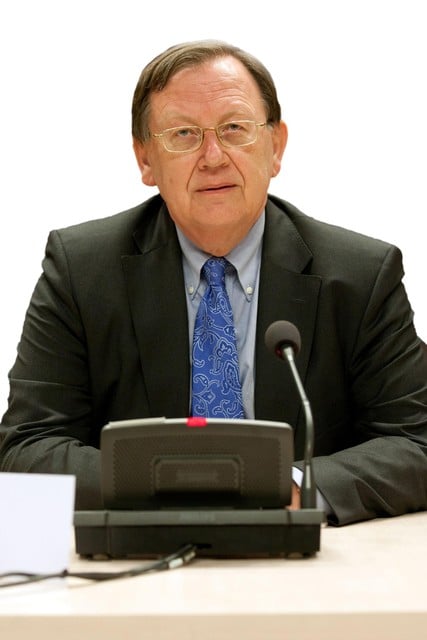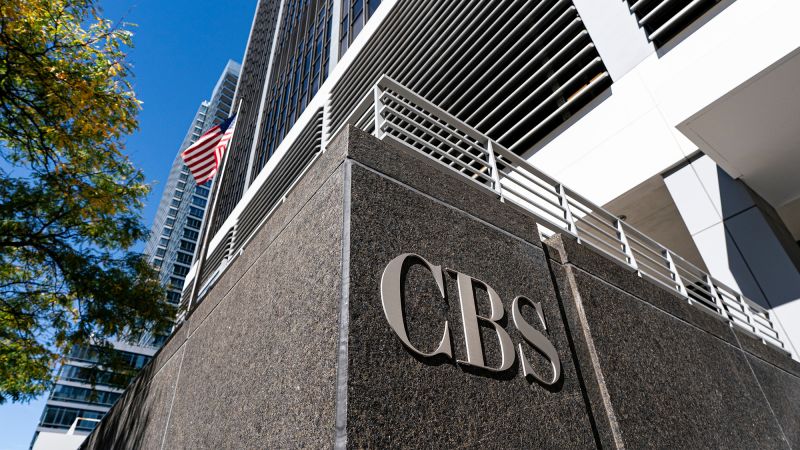Former Dutch central Bank Chief Brands Trump an “Economic and Political Terrorist” Amid Trade War Fears
In a scathing critique reminiscent of the Cold War era, nout Wellink, the former president of the
Nederlandsche Bank
(DNB), unloaded on former President Donald Trump, labeling him an “economic and political terrorist”
and an “unguided projectile” destabilizing the global order. Wellink, in a podcast released Sunday,
April 6, 2025, didn’t mince words, expressing deep concern over the trajectory of U.S. policy under Trump’s
leadership.

Wellink’s broadside comes in the wake of Trump’s announcement on wednesday, April 2, 2025, of sweeping
import tariffs: 20% on European goods, a staggering 54% on Chinese products, and unspecified levies on
goods from the rest of the world.These measures, ostensibly a response to perceived unfair trade practices,
have sent shivers down the spines of economists and investors alike.
“There is more going on than just a rates war,”
– Nout Wellink, Holland gold podcast
Wellink, now 81, argued in the
Holland Gold
podcast that the trade war is just one symptom of a deeper malaise. He criticized Trump’s foreign policy
decisions, including his rhetoric concerning Greenland and Canada, his dealings with Ukraine, and his
overall stance toward Europe.
“America started withdrawing from all the multilateral institutions,” Wellink stated, adding a chilling
assessment of the U.S. domestic situation: “In the US you can see that the separation of powers, between
executive power, judiciary and parliament, is broken and there are all kinds of institutions that are knocked
down in the country itself.”
Trump’s Tariffs: “They Don’t Know What They Are Doing”
The core of Wellink’s criticism focused on the seemingly arbitrary nature of Trump’s tariff calculations.
“They don’t know what they are doing.”
– Nout Wellink, Holland Gold podcast, regarding Trump’s tariff calculations
The sentiment echoes concerns raised by Klaas Knot, the current DNB president and Wellink’s successor, who
reportedly described the American calculation method as “staggering” the previous week. This lack of a
clear,consistent methodology fuels uncertainty and makes it challenging for businesses to plan and invest.
To illustrate the potential impact, consider the U.S. auto industry. If tariffs on imported auto parts from
Europe and Asia increase dramatically, American automakers reliant on these parts could face higher production
costs. These costs could then be passed on to consumers, leading to higher car prices and perhaps reduced
sales. similarly,tariffs on steel and aluminum,previously implemented under the Trump management,
have already led to increased costs for manufacturers across various sectors,from construction to aerospace.
The current proposals threaten to exacerbate these issues.
| Sector | Potential Impact of 20% Tariff | U.S. Jobs at Risk (Estimate) |
|---|---|---|
| Automotive | Increased production costs, higher car prices | 50,000 – 100,000 |
| Agriculture | Reduced exports due to retaliatory tariffs | 25,000 – 50,000 |
| Consumer Electronics | Higher prices for smartphones, laptops, etc. | 10,000 – 20,000 |
*Note: Job at risk estimates are based on industry analysis and potential economic modeling. Actual figures
may vary.*
“Send Psychiatrists and Psychologists”: Wellink’s Call for Understanding
Wellink went further, suggesting that trump’s actions stem from personal animosity and a flawed worldview.
“You have to send psychologists and psychiatrists to him to find out what the deepest causes are.”
– Nout Wellink, Holland Gold podcast, on understanding Trump’s behavior
While such a statement is highly unusual for a former central banker, it reflects the depth of concern felt by
many within the international economic community regarding the unpredictability of U.S.trade policy under
Trump.
Wellink urged Europe, in collaboration with Asian nations, to take a firm stance against the U.S.
“Otherwise they think they can do everything impunity.”
– Nout Wellink, Holland Gold podcast, on Europe’s response to the U.S.
This call for a united front highlights the potential for a significant realignment of global trade relations,
with countries seeking to bypass the U.S. and forge new partnerships. For example,the extensive and
Progressive Agreement for Trans-Pacific Partnership (CPTPP),a trade agreement between 11 countries in the
Asia-Pacific region,could gain renewed prominence as nations look for alternatives to U.S.-dominated trade.
Market Turmoil and Recession Fears
The immediate impact of Trump’s tariff announcements was felt in global stock markets, which experienced
significant losses on Thursday and friday, April 3-4, 2025. Investors are clearly worried about the
escalating trade tensions and the potential for a global economic slowdown. economists are warning of a
potential cooling of world trade and even a recession.
The trade war comes at a notably sensitive time for the U.S. economy. While unemployment remains low,
inflation is a persistent concern, and rising interest rates are already putting pressure on businesses and
consumers. A trade-induced slowdown could exacerbate these problems and potentially trigger a recession.
The situation remains fluid, and the long-term consequences of Trump’s trade policies are still uncertain.
However, the strong words from Nout Wellink underscore the gravity of the situation and the potential for
significant disruption to the global economic order.






